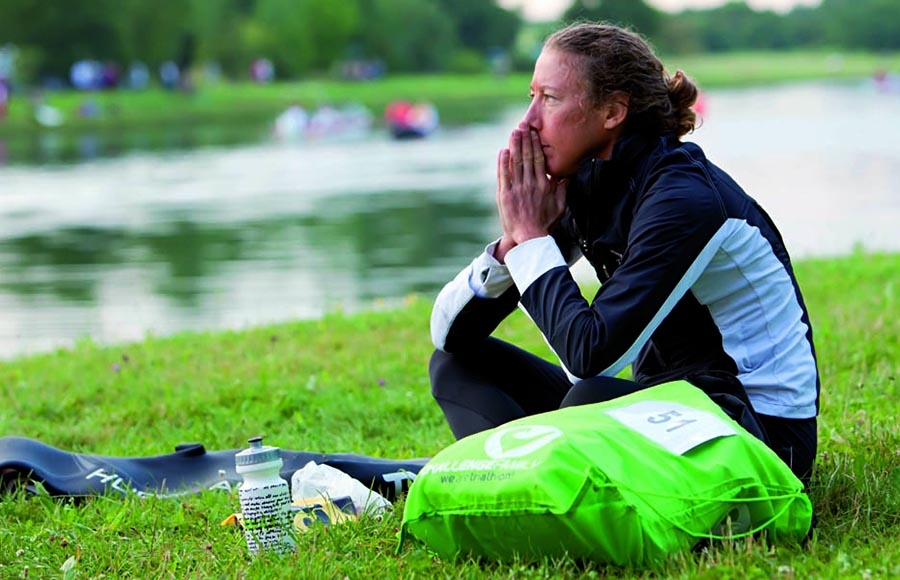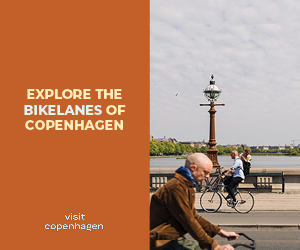‘This was no technical masterclass. This was blood and grit, a war of attrition. My mind could have given up on me at so many stages, and I just would not let it.’
Matter-of-fact and resolute, these are the words of Chrissie Wellington on her fourth victorious world Ironman triathlon – one of the harshest tests of human endurance, and a feat beyond most people’s comprehension, let alone physical ability. Not only had Chrissie triumphed over a 2.4-mile mass brawl of a swim, pedalled 112 miles on her bike and pounded her way through a full 26.2-mile marathon, all under the scorching Hawaiian sun: she had done it despite the searing pain of several horrific injuries sustained in a bike accident the week before.
Though she has dedicated her life to the sport, attacking long and brutal training sessions with the regularity of a mere mortal making a cup of coffee, it is Chrissie’s sheer, bloody-minded determination which she credits as the key to her phenomenal success. And while her astonishing willpower helped her to excel academically and professionally, securing her the high-powered job in international development that she gave up to become a professional athlete, it also lay behind her earlier battles with bulimia and anorexia and a deep-rooted dread of failure.
In her new autobiography A Life Without Limits, the 34-year-old apparent superwoman spares no detail in documenting her rise to the top – and in doing so, urges us all to push ourselves to achieve more and to defy our own expectations of what is possible.
Norfolk-born Chrissie’s potential for international success was not apparent straight away. She was accident-prone and short on common sense, traits which earned her the nickname ‘Muppet’ as a girl, and her only sporting achievements were playing wing attack in a school netball team and winning ‘the odd race’ as a member of the Thetford Dolphins Swimming Club.
She came to the sport unusually late too, having excelled at university and risen quickly through the Civil Service to land a job working alongside Margaret Beckett at government agency DEFRA. When she became disillusioned with the bureaucracy of the role, Chrissie took a sabbatical and worked for Nepalese development NGO Rural Reconstruction Nepal, before travelling around the world in search of inspiration.
It was in Kathmandu that Chrissie developed a love for mountain-biking, and cycled in the Himalayan foothills every morning before work. This, allied with a new-found addiction to the buzz she got from running, signalled that the pieces of the triathlon jigsaw were slowly coming together. Chrissie only turned professional in 2007, at the relatively advanced age of 29, and the decision seemed by no means an obvious one at the time. ‘At that point I had to decide whether or not to take the risk, give up my job and have a stab at making a living as a professional triathlete,’ she recalled. ‘I never want to look back and think, “What if?”. You only get one chance at life, and the most important thing is for me to know that I have given it everything, fulfilled my potential and been the best I can be. Unless I gave it a shot at going pro, I would never really know.’
The things she witnessed and the people she met while travelling changed Chrissie’s perspective on life, and opened her eyes to the human capacity to solve problems, and also to exacerbate them. ‘Nepal made me question my whole concept of development, and I saw the many benefits but also the very many negatives,’ explained Chrissie, leaning forward and tugging absent-mindedly on her boots in thought.
‘I got frustrated with the job [at DEFRA] because I felt impotent to effect positive change. I felt a strong sense of my own hypocrisy, and the hypocrisy of others, in what I was doing and saying. International development is still very much driven by our own concepts of what we think other people need. We still have a very “they are the victim, we need to help them” approach, and that’s why I enjoy so much working on a methodology that lets the beneficiary take control and have responsibility. ‘That’s not to say I thought the work we were doing wasn’t valuable; it was. But it didn’t satisfy my own personal desire to see and feel and hear that change. Doing triathlon has given me that in a very different way. I can see, feel and hear people’s love for the sport, and I can see how it changes their lives. I can inspire people on a very personal level now.’
‘Inspirational’ is a word thrown around all too easily, but Chrissie seems truly to deserve the accolade. Her book pulls no punches in describing the pain, mental despair, tears, thrills and spills which have allowed her to remain unbeaten through a staggering 13 Ironman races, and come from nowhere to challenge even the male triathletes for victory, tossing shattered world records behind her as she goes. She is famous for her beaming, infectious smile which seems completely at odds with the herculean demands of her event.
One passage of the memoir describes the Ironman: ‘People vomit at the side of the road, they lose control of their basic functions, they collapse, they become delirious, desperate to reach the finish line when sometimes that finish line is still miles away.’ Her former coach, Brett Sutton, renowned for his unorthodox and ferocious training techniques, looms large in Chrissie’s recollections. The pair’s formerly tempestuous but now close relationship, locked as they sometimes were in an all-out battle for control, makes for fascinating reading.
It was Brett who handed Chrissie a photocopy of Rudyard Kipling’s poem If, the words of which she scrawls over her water bottles to inspire her to push through the last searing miles. She still carries around the copy he gave her, now dog-eared and patched up with Sellotape, and admits that she continues to struggle to define herself by any factor other than whether she wins or loses. ‘Of course I would be devastated if I ever lost an Ironman, but I am learning to see failure as a springboard – I have learned a lot from the times when it has been incredibly difficult. I think that’s what the “triumph and disaster” line of the poem means,’ she muses.
‘And I love the part: “Force your heart and nerve and sinew”, because it’s about eking everything out of your body and your mind. It encapsulates all that it takes to be a successful athlete, a successful person. It was also Brett’s way of trying to teach me to have a rein on my crazy mind.’
Chrissie has recently announced that she will take a break from triathlon in order to concentrate on other things, including her charity work. As a result of her own journey, in which she overcame eating disorders and learned to love her body for what it has enabled her to achieve, Chrissie is adamant that sport can help empower people to take control of their lives. ‘I’ve met a heroin addict who came off drugs and completed an Ironman; I’ve seen double-legged amputees and people with terminal cancer finish, and women who wouldn’t even be seen in a pair of Lycra leggings develop the confidence, through sport, to go out there,’ she enthused.
‘Crossing the line in Kona last year [her fourth world-champion victory] was the most gratifying, satisfying, physically and mentally exhausting victory I’ve had, and I learned more than I ever have about myself and my capabilities during that race. I had to confront my own personal demon – my fear of losing – because I probably shouldn’t even have been on the start line.
‘When I finished, I was entirely physically and mentally spent, yet I was smiling because I love triathlon and the gift it has given me. It’s exhilarating, it’s challenging.’ Frowning now as she remembers that most poignant of moments, Chrissie then admits with a wry chuckle: ‘Sometimes the smile masks the pain – it’s easier to smile than to frown.
‘But generally it’s just because I’m, well, enjoying myself!’
A Life Without Limitsby Chrissie Wellington (£18.99) is out now, published by Constable & Robinson













